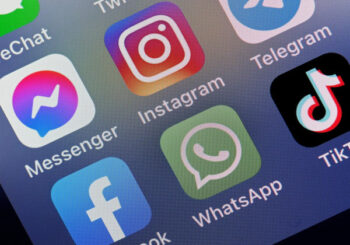By John Patterson
Staff Writer for Wake Up World
Recently the American Psychological Association and the U.S. Surgeon General issued health advisories that highlighted the concerning connection between increased social media usage and declining mental health among teenagers. A new study conducted by researchers at Iowa State University has shed light on this issue and offered a promising solution. Through a simple two-week intervention, the study found that limiting social media usage and receiving daily reminders can significantly improve mental well-being among college students. The results emphasize the need for awareness and self-regulation when it comes to social media consumption.
[pro_ad_display_adzone id=”110028″]
The Impact of Social Media on Mental Health
The mounting body of research linking social media and mental health issues has raised alarm bells among experts. The study conducted by Iowa State University sheds light on this concerning trend, as lead author Ella Faulhaber, a Ph.D. student in human-computer interaction, explains, “It surprised me to find that participants’ well-being did not only improve in one dimension but in all of them.” The negative effects of social media usage include increased anxiety, depression, loneliness, and fear of missing out. These findings underscore the urgency to address this issue and find practical solutions.
A Simple Intervention with Promising Results
The Iowa State University study involved 230 college students who were asked to limit their social media usage to 30 minutes a day and received daily automated reminders. The results were astounding, with the intervention group reporting significantly lower levels of anxiety, depression, loneliness, and fear of missing out compared to the control group. The participants also experienced higher levels of positive emotions and a brighter outlook on life.
Lead author Ella Faulhaber expresses her excitement about the study’s findings, stating, “I was excited to learn that such a simple intervention of sending a daily reminder can motivate people to change their behavior and improve their social media habits.” This highlights the potential impact that small changes in social media habits can have on overall well-being.
The Power of Self-Limiting
While the 30-minute benchmark played a role in improving mental health, co-author Douglas A. Gentile, a distinguished professor of psychology, suggests that the key ingredients for success lie in self-limitation and attentiveness rather than rigid adherence to a specific time limit. He draws parallels to the health and fitness realm, where counting steps using devices like Fitbits has been shown to be effective in motivating behavior change.
The participants in the study reported initial challenges during the first few days of limiting social media usage. However, they also shared positive outcomes such as increased productivity, better sleep, and enhanced in-person social connections. This suggests that the benefits of reducing social media time extend beyond the realm of mental health.
[pro_ad_display_adzone id=”110030″]
Practical Strategies for Social Media Reduction
The study’s authors emphasize the need for practical strategies to limit social media usage. They recommend the following steps to individuals looking to cut back:
- Create awareness: Use a timer or a built-in wellness app to track and monitor the amount of time spent on social media. This self-awareness helps individuals realize the extent of their social media consumption.
- Give yourself grace: Recognize that adhering to a time limit is not easy, as social media platforms are designed to keep users engaged. Be patient with yourself and acknowledge that it’s a gradual process.
- Don’t give up: Persistently limiting social media use over time yields tangible benefits in daily life, including improved mental well-being and overall productivity.
Future Directions and Conclusion
The study conducted by Iowa State University contributes to the growing body of research on social media’s impact on mental health. The findings underline the importance of being mindful of how and when we engage with these platforms. Future research can delve deeper into the long-term effects of limiting social media usage and explore how individuals allocate the time they gain.
Co-author Douglas A. Gentile asserts, “We live in an age of anxiety… but there are things we can do to manage our mental health and well-being.” By paying attention to our social media usage and setting measurable goals, we can take control of our mental well-being and work towards a healthier relationship with these platforms.
As society grapples with increasing mental health challenges, studies like this provide hope and practical strategies to mitigate the negative effects of social media. By embracing self-regulation and conscious social media usage, individuals can pave the way for a brighter and more balanced future.
Reference:
- Mayoorey Murugathasan, Ardavan Jafari, Amandeep Amandeep, Syed A Hassan, Matthew Chihata, Ali A. Abdul-Sater. Moderate exercise induces trained immunity in macrophages. American Journal of Physiology-Cell Physiology, 2023; DOI: 10.1152/ajpcell.00130.2023
About the author:
John Patterson is an avid writer and researcher who delves into the latest scientific research. With an insatiable curiosity, he translates complex concepts into accessible narratives, allowing readers to embark on a journey of discovery. Through his work, John bridges the gap between experts and the public, igniting curiosity and inspiring meaningful conversations about scientific breakthroughs.
[pro_ad_display_adzone id=”110027″]







